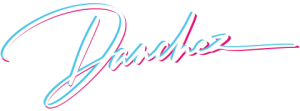This is one of the few books on my shelf that I come back to over and over again. In the 4-Hour Workweek, Tim Ferris capture fresh ideas about job management and business development that only become more helpful to me as I progress in my career. Tim puts the famous Pareto Principle to work for him to generate income and minimizing his work load.
While working only 4 hours a week is not my personal dream, I have taken quite a few of his techniques to save time, become more effective, and make steady progress in my career. It is my hope that I will be able to put 80% of this book into play in my life, so that I make an impact on the world for Christ, raise a family, and still have time left over for side pursuits.
The most important parts of the book can be broken down into three parts: Elimination, Automation, and Liberation.
In Elimination, Tim walks you through his own personal story of how he was able to effectively carved out hours of time in his weekly schedule and shares some practical examples of how most people can do the same. He challenges readers to be real with themselves about the ways they fill time with less then productive habits. For example: Checking your email every 30 minutes, spending time worrying, reading useless information, or ineffectively multitasking. Tim also makes the case that 20% of your life is causing 80% of your problems and unhappiness. So 20% of your relations, to-do list, projects, and work are causing 80% of your problems. Much of which can be eliminated. If you doubt whether it can be, ask yourself “If I had a heart attack and was forced by my doctor to work only 2 hours a day, what activities would be the most vital for me to continue”?
Elimination is followed by Automation. After cutting out the work, people, customers, and other things that waste time, your left with the most profitable and productive tasks and projects. Tim makes a case that many of these remaining items can be automated partly, if not entirely. Through the use of time saving software, virtual personal assistance, and work flow processes; you can get 80% of the more repetitive tasks that don’t require your brilliance.
After eliminating much of your work and automating the rest, Tim walks us through Liberation – how to take the step away from work to pursue your dreams. To do this he proposes two different routes: 1. start a business that lends itself to automation or 2. work remotely for your current employer. Both are not easy tasks, but are certainly attainable by those who want to put in the effort on the front end to make the jump later.
Best Quotes from the book:
“Slow down and remember this: Most things make no difference. Being busy is a form of laziness—lazy thinking and indiscriminate action.”
“People will choose unhappiness over uncertainty.”
“Information is useless if it is not applied to something important or if you will forget it before you have a chance to apply it.”

